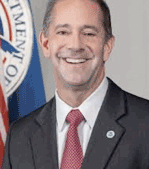|
Lithium batteries has been a hot topic, but
it has been even more so with the growth of e-Commerce.
One of the panels held during IATA’s
Cargo Events in Amsterdam the end of October was especially well
attended.
The “e-Commerce and Mail, a
Risk or Opportunity?” panel discussed how e-commerce is providing
significant growth by postal operators.
Postal operators are utilizing international
air mail for the shipment of products by all sizes of shippers.
The problem that exist is that many
shippers are not knowledgeable on what restrictions there are on
dangerous goods.
Dawn Of The Postal Union
The e-Commerce and Mail panel was
made up with Dawn Wilkes, Program Manager, Security for the Universal
Postal Union, James Wyatt, General Manager of aeroconcept and Alex
McCulloch, International Dangerous Goods Manager for UPS.
They discussed the due diligence that
all know that is important to ensure the safety of the supply chain.
As airmail has seen such a dramatic
growth due to e-commerce, there was much discussion on lithium batteries
in these shipments.
How do you educate the shipper? What
can governments do?
What is the responsibility of the
postal operators? Is mail, really mail as we have known it in the
past?
Lots of questions.
Air Mail Super Highway
In the United States there has been
a large growth of mail with the reduction of the de minimis value
for customs clearance of $800.
This has made airmail a new way to
transport e-commerce shipments.
The China Question
It was brought up that 80% of the
mail coming into the U.S. alone is coming from China Post.
The concerns are there are shippers
that do not know what they are shipping is not dangerous and others
are just not declaring the goods.
The last are the bad guys.
The problem is not just a mail issue
but a cargo issue.
Not Your Grandfather’s Air Mail Anymore
Others are saying that mail is not
mail as we have known it in the past, envelopes and cards, but is
a true express type product that does not necessarily follow the
same rules as conventional and express air cargo.
Lithium Issues No Short Circuit
 The
conversation on lithium battery was not just on this panel but rolled
over in the security and customs groups as well. U.S. Customs and
Border Protection Director for C-TPAT (Customs Trade Partnership
Against Terrorism) and TSA Cargo Director John Beckius (right) also expressed their concerns over the security and safety issues. The
conversation on lithium battery was not just on this panel but rolled
over in the security and customs groups as well. U.S. Customs and
Border Protection Director for C-TPAT (Customs Trade Partnership
Against Terrorism) and TSA Cargo Director John Beckius (right) also expressed their concerns over the security and safety issues.
 Also,
in attendance from the U.S. government was Duane A. Pfund, (left) International Program Coordinator, Pipeline and Hazardous
Materials Safety Administration for the U.S. Department of Transportation. Also,
in attendance from the U.S. government was Duane A. Pfund, (left) International Program Coordinator, Pipeline and Hazardous
Materials Safety Administration for the U.S. Department of Transportation.
Overall the panel focused on a serious
issue that the entire air cargo industry must work on every day
to ensure the safety of the aviation industry.
What seemed to be most important is
that the industry has a focus and the event brought together postal,
government, industry and shippers to work together on an important
issue as this.
Good work, lively discussion from
IATA Cargo.
Cargo Careen's Toward Lithium
IATA, FIATA, TIACA, GSF lifted voices
together, calling a crack-down on manufacturers of counterfeit batteries
and of mis-labeled and non-compliant shipments introduced into the
supply chain, by issuing and enforcing criminal sanctions on those
responsible.
Noting that demand for lithium batteries
is growing by 17% annually the group warned:
“Dangerous goods, including
lithium batteries, are safe to transport if managed according to
international regulations and standards.
The Misdeclared Menace
 “But
we are seeing an increase in the number of incidents in which rogue
shippers are not complying,” said Nick Careen, (left) IATA’s Senior Vice President, Airport, Passenger, Cargo and
Security as he revealed an industry information-sharing platform
to target misdeclared consignments of lithium batteries. “But
we are seeing an increase in the number of incidents in which rogue
shippers are not complying,” said Nick Careen, (left) IATA’s Senior Vice President, Airport, Passenger, Cargo and
Security as he revealed an industry information-sharing platform
to target misdeclared consignments of lithium batteries.
“We are also launching a series
of dangerous goods awareness seminars being held across the world
targeting countries and regions where compliance has been challenging.”
In addition, an education and awareness
program for customs authorities has been developed in collaboration
with the World Customs Organization (WCO).
Total Effort
The industry has put its support behind
an initiative presented by the United Kingdom, New Zealand, France
and the Netherlands at the recent Assembly of the UN’s International
Civil Aviation Organization (ICAO) which calls for adoption of a
cross-domain approach to include aviation security, manufacturing
standards, customs and consumer protection agencies.
Currently air cargo is scanned for
items that pose a risk to security such as explosives, but not safety
such as lithium batteries.
 “Safety is aviation’s
top priority. “Safety is aviation’s
top priority.
Abuses of dangerous goods shipping
regulations, which place aircraft and passenger safety at risk,
must be criminalized,” said Glyn Hughes, IATA’s Global
Head of Cargo.
“The increasing
use of lithium batteries coupled with the growth of e-commerce supply
and demand is exposing the air cargo supply chain to greater risk
of un-declared or mis-declared goods. We support regulators imposing
strict adherence to established compliance standards,” said
Mr. Keshav Tanna, (right) Chairman of FIATA’s Airfreight
Institute.
Geoffrey
|




